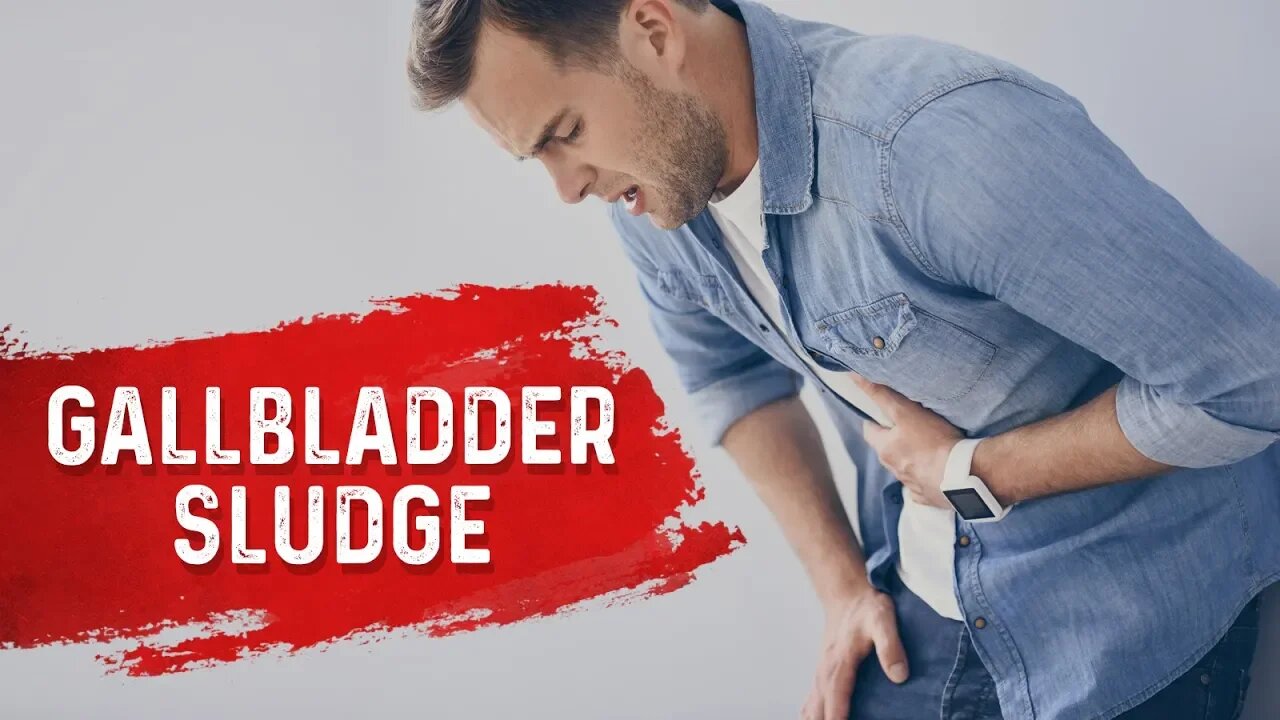Premium Only Content

Why Does Intermittent Fasting Increase Gallbladder Sludge? – Dr.Berg
Intermittent fasting can cause gallbladder sludge, but it’s temporary.
Timestamps:
0:00 Intermittent fasting can result in gallbladder sludge, but it’s only temporary
0:54 This is what happens after 10 to 15 hours of fasting
2:04 Here are some things you can do to minimize gallbladder sludge while intermittent fasting
In this video, I explain why some people get gallbladder symptoms when they start intermittent fasting.
First, here are the symptoms of a gallbladder problem: right shoulder pain that may also be felt by your scapula, your mid-back, or up through your neck. It may even be on your head and jaw, leading to a headache. But always on your right side.
Abdominal pain, also on your right side, usually up under the right rib cage. You may feel bloated, experience burping, and have nausea.
After about 10 to 15 hours of fasting, your gallbladder is saturated with bile. Think about it; when you eat, the bile is supposed to be released from your gallbladder. It usually contracts and squeezes bile into your intestine to help with digestion, especially to help break down fats. When you’re not eating, the bile just sits there in your gallbladder getting more concentrated.
However the maximum concentration occurs 10 to 15 hours into your fast, which often corresponds to the symptoms of a gallbladder problem occuring. The bile has gotten thick and sludge-like.
You may be concerned that you’re going to get gallbladder stones, and wonder what to do.
First, realize that after its peak, the concentration will subside. Your body will thin the bile if you either keep fasting or eat. This sludge-like effect mainly occurs when you first begin intermittent fasting. As you fast more often, your body will deal with excess bile.
Here are a few things you can do to minimize gallbladder sludge when you are intermittent fasting. Add lemon to your water. It’s ok to drink this during a fast. Adding apple cider vinegar to the lemon water will help.
As well, make sure you don’t overdo it with consuming fats, especially when you’re just beginning a ketogenic diet. A lot of time at the beginning people will go crazy consuming fats. They drink MCT oil, or put butter in their coffee. Instead, ease into fats gradually.
If you’re concerned about stones, they usually form because of too much insulin. This is why diabetics are at risk for stones. But keto and intermittent fasting will lower your insulin.
Dr Eric Berg DC Bio:
Dr. Berg, age 56, is a chiropractor who specializes in Healthy Ketosis & Intermittent Fasting. He is the author of the best-selling book The Healthy Keto Plan, and is the Director of Dr. Berg Nutritionals. He no longer practices, but focuses on health education through social media.
Follow us on FACEBOOK: fb.me/DrEricBerg
Send a Message to his team: m.me/DrEricBerg
ABOUT DR. BERG: https://bit.ly/39LCWg8
Disclaimer: Dr. Eric Berg received his Doctor of Chiropractic degree from Palmer College of Chiropractic in 1988. His use of “doctor” or “Dr.” in relation to himself solely refers to that degree. Dr. Berg is a licensed chiropractor in Virginia, California, and Louisiana, but he no longer practices chiropractic in any state and does not see patients so he can focus on educating people as a full-time activity, yet he maintains an active license. This video is for general informational purposes only. It should not be used to self-diagnose and it is not a substitute for a medical exam, cure, treatment, diagnosis, and prescription or recommendation. It does not create a doctor-patient relationship between Dr. Berg and you. You should not make any change in your health regimen or diet before first consulting a physician and obtaining a medical exam, diagnosis, and recommendation. Always seek the advice of a physician or other qualified health provider with any questions you may have regarding a medical condition. The Health & Wellness, Dr. Berg Nutritionals and Dr. Eric Berg, D.C. are not liable or responsible for any advice, course of treatment, diagnosis or any other information, services or product you obtain through this video or site.
Thanks for watching!
If you develop gallbladder problems when you start intermittent fasting , here’s what you can do to lessen the chances.
-
 9:58
9:58
Dr. Eric Berg
3 days agoThe #1 REAL Benefit of Collagen (That NO ONE Talks About)
4.2K16 -
 5:31
5:31
John Rich Official
13 days agoThe Righteous Hunter by John Rich
16.9K8 -
 59:51
59:51
Rebel News
2 hours agoEby threatens to block pipeline, Guilbeault out of cabinet, Land disputes continue | Rebel Roundup
15.1K2 -
 1:45:59
1:45:59
Robert Gouveia
4 hours agoAmerican Soldier DEAD! Trump Furious! Afghan 'Vetted by CIA'! Third World FREEZE!
41.7K32 -
 48:48
48:48
The Culture War with Tim Pool
3 hours agoThe West Is COLLAPSING Under Mass Migration | The Culture War's Across The Pond
28.9K53 -
 1:42:33
1:42:33
The Mel K Show
3 hours agoMORNINGS WITH MEL K - We Have Not Yet Begun to Fight - The Clock is Ticking! 11-28-25
24.8K14 -
 1:25:54
1:25:54
Film Threat
15 hours agoHOLLYWOOD FOR SALE! BLACK FRIDAY BLOW OUT! | Film Threat Livecast
14.8K2 -
 LIVE
LIVE
The Shannon Joy Show
4 hours agoSJ Show Nov 28 - The SJ Friday Matinee Watch Party With Commentary Featuring The Big Short!
38 watching -
 35:39
35:39
Grant Stinchfield
6 hours ago $2.23 earnedThe Medical Deep State Exposed — And McCullough Has the Receipts!
12.4K -
 59:15
59:15
Trumpet Daily
3 hours ago $2.94 earnedTrumpet Daily LIVE | Nov. 28, 2025
12.6K3